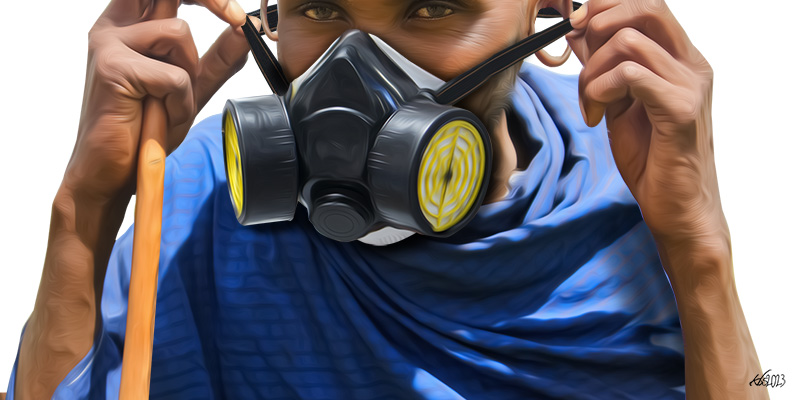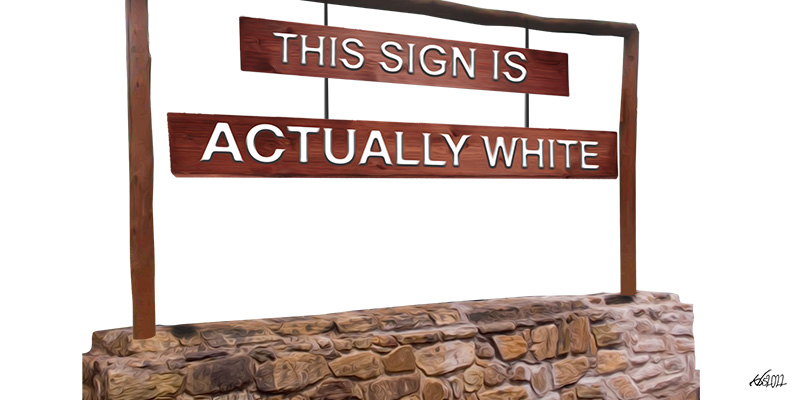A little less than a month is left before Nigerians cast their ballots for their next president and parliament, the National Assembly. The elections will be held on February 16, followed two weeks later, on March 2, by votes for state governors and state assemblies.
Officially, Nigeria’s election campaign only began on November 18, 2018, but it was evident that the campaign was long underway before the official start, with flags and banners festooning the streets for months. Campaign offices opened throughout the country as early as 2017, and the merry-go-round of party defections, denunciations, and the making and breaking of alliances, was in full play.
Most analyses of Nigeria’s electoral politics focus on a few familiar themes: Nigeria’s size; terrorism, and corruption. And, of course, the presidential race. True, the country is Africa’s largest democracy, having added more than 14 million voters since the 2015 elections, with the rolls now holding a massive 84 million registered voters. Also undeniable is that Nigeria is vulnerable to disruption from terrorist groups, most notably from the Islamic State in West Africa, more commonly known as Boko Haram. Everything is bigger in Nigeria, the saying goes, and that is true of corruption as well; in March 2018, the federal government’s accountant-general found that 20 per cent of those on the country’s police payroll, amounting to more than 80,000 officers, or about the same number that serve in the entirety of the Kenya Police Service and Administrative Police Service combined, could not be accounted for.
And when it comes to presidential politics, two septuagenarian Muslims from northern Nigeria, both veterans of the political scene, are the leading contenders. The incumbent president, Muhammadu Buhari, 76, a former military head of state in the 1980s, seeks a second term as a civilian president under the coalition he assembled in 2013, the All-Progressives Congress (APC). Many Nigerians are disappointed in Buhari, who took office in 2015 with grand promises of change, many of which have yet to come to fruition. A sluggish economy, weighed down by low oil prices, has also hurt Buhari’s prospects.
Buhari’s principal challenger is businessman Atiku Abubakar, 72, a former vice-president of Nigeria and one-time APC member, now the candidate of the People’s Democratic Party (PDP), which held power from 1999 to 2015.
But despite these consistent themes and characters, and the indisputable importance of the presidential contest, it would be a mistake to think that nothing has changed in Nigeria, or that there are no other Nigerian political races that also matter hugely in their own right. To paraphrase the writer Chimamanda Ngozi Adichie, there is no “single story” about Nigeria’s 2019 elections.
These presidential elections may reconfigure old tensions over identity. In 2015, when the then President Goodluck Jonathan, a Christian from southern Nigeria, faced Buhari, the perception that votes were cast on the basis of religious affiliation was strong. Religious minorities living in majoritarian communities often bore the brunt. This time, Nigeria’s south does not have a major presidential candidate to back, which may ease communal tensions and diminish the argument that a Christian could or should only vote for a Christian. But it also positions the southern states to be presidential kingmakers – a role to which these areas have not been usually accustomed.
But despite these consistent themes and characters, and the indisputable importance of the presidential contest, it would be a mistake to think that nothing has changed in Nigeria, or that there are no other Nigerian political races that also matter hugely in their own right. To paraphrase the writer Chimamanda Ngozi Adichie, there is no “single story” about Nigeria’s 2019 elections.
Yet to conclude that Nigeria’s election is only or even mostly about identity would also be erroneous. In many parts of the country, there are legitimate concerns that civic space is shrinking, and the expression of views that defy those that are officially permitted is unwelcome. At the same time, that political debates are being shaped by questions over the performance of the economy is notable: it suggests that issues, and not only personalities, do matter, although a considerable number of voters are confident that their preferred candidate – whether Buhari or Abubakar – will take the necessary steps towards economic reform if elected, without any systematic reasoning for that belief. In that respect, the optimism of Nigerians is no different from that of citizens of other countries.
These are also the first elections in which there is the precedent of the peaceful acceptance of defeat. Incumbents almost always win, and there were some that felt that former President Jonathan would try to cling to power in 2015. There were credible fears that Jonathan’s PDP would not accept being removed from office, having governed Nigeria since democratic elections were reinstituted in 1999. But Jonathan did go, and peacefully transferred power for the first time in the country’s democratic history. The transition to Buhari, while not without some hurdles, was smooth. Having defeated an incumbent once enlarges the imagination to the possibility of it occurring again. In this way, therefore, the 2019 vote is almost as important a test as 2015: can the principles of magnanimity and acceptance of credible electoral outcomes be entrenched, rather than discarded, when it matters most?
The other consequence of a president being defeated at the polls is higher expectations for the overall electoral process. Although many Nigerians expressed concerns about electoral preparations in the run-up to the 2015 vote, the retrospective judgment is that the Independent National Electoral Commission (INEC) delivered a credible election in 2015. There are much higher expectations of INEC this time around, and particularly of the commission’s chair, who cannot escape comparisons to his predecessor. Prior to 2015, the country’s history of election management was, at best, checkered. However, even if today’s INEC is building from a strong foundation, past performance is only a limited indicator of future results.
To the point of expectations and perceptions, many perceive any missteps by the electoral commission – no matter how unintentional – as deliberate steps away from the high watermark of 2015. And although INEC has improved its technical preparations for the upcoming vote, few are aware of this work, which limits the positive regard in which INEC is held. Two recent votes, in the states of Ekiti in July and Osun in September – known in Nigeria as “off-cycle” elections, their place on the calendar permanently altered by judicial invalidation of previous polls for irregularities – have generated plenty of concern and criticism about INEC’s actions and inactions, whether justified or not.
Narratives of insecurity are also in flux. Ask any Nigerian about insecurity today and they will speak of what are often misleadingly known in the vernacular as farmer-herder clashes. Although many of these disputes are accurately depicted as resulting from disputes over land and grazing access, to subsume all of these disputes under this rubric oversimplifies the nature, cause, and expression of such forms of violence.
That said, across Adamawa, Benue, Kaduna, Plateau, Taraba and Zamfara, among other states, dozens of violent episodes have occurred, leading to the deaths of more than 1,300 people and the displacement of hundreds of thousands. Such forms of insecurity may well affect the prospects for candidates running in these states. And compared to the Islamist terrorism of Boko Haram, which remains largely confined to the states of the northeast region, these other forms of violence are – and are perceived to be – much more geographically widespread.
Narratives of insecurity are also in flux. Ask any Nigerian about insecurity today and they will speak of what are often misleadingly known in the vernacular as farmer-herder clashes. Although many of these disputes are accurately depicted as resulting from disputes over land and grazing access, to subsume all of these disputes under this rubric oversimplifies the nature, cause, and expression of such forms of violence.
Even in states that are not directly affected, the prevalence of such clashes is a barometer for the performance of the federal government, and in particular, the president. Some argue that Buhari is overly sympathetic to the herders, which they argue explains the government’s ineffectual response. The reality of the political economy, environmental stress, easy access to arms, and the inadequacy of civilian law enforcement are only some of the factors that explain why such disputes are so hard to prevent.
Criminality, banditry, as well as some elements associated with the Biafra secessionist movement, also pose threats to the elections. Though they comprise a common narrative around the possibility for electoral disruptions, they largely differ in terms of their causalities and manifestations, and areas of the country they most affect.
These dynamics, and how they impinge on Nigeria’s presidential race, attract most of the attention, analysis and focus. However, the national level is only one side of the story. Nigeria’s electoral experience and expectations vary considerably from state to state, as research we conducted in 2018 in eight states showed. For example, in Kaduna, a state in northern Nigeria badly hit by electoral violence in 2011, the long shadow cast by this history remains relevant even today. Some feel that the cost of violence in 2011 was so high that it is likely to deter future electoral violence. Fears over violence arising from recent local government elections, which were administered by a state-level electoral commission, saw some incidents, but no widespread dispute. Yet, the potential for other forms of violence – such as communal clashes between Muslims and Christians – remains. The Kaduna gubernatorial election is likely to be tense, and polarisation in the state may only further fracture the historic political convergence across ethnic and religious divides that brought the APC to power in Kaduna in 2015.
Meanwhile, in Lagos, Nigeria’s largest city, and a state in its own right, intra-party rivalries are challenging the APC’s ability to manage internal disputes. In addition, local government elections in 2017 – for municipalities and town councils – also aggrieved many political aspirants within the APC. The challenge has been as much the contest within the party, as the contest with other parties. At the same time, many Lagosians say that they are more interested in making money than in participating in politics, which may drive voter apathy and contribute to a lower risk of electoral turmoil.
Intra-party disputes are one example of where the national intersects with the local. The conduct of political party primaries can create its own backlash. Within the ruling APC, prominent figures from Imo and Zamfara states have accused the party’s national chairman, Adams Oshiomole, of colluding with other party members to impose their candidates at the state level.
However, party disputes can also manifest themselves in different ways. Kano is a clear example of Nigeria’s multiple layers of electoral stories. The state was crucial to Buhari’s victory in 2015. The former governor of Kano, Rabiu Kwankwaso, who now sits in the national senate, was instrumental in Buhari’s victory, and in the election of his successor as governor, Abdullahi Ganduje, his former deputy governor. Kwankwaso and Ganduje have fallen out, and Kwankwaso has defected to the PDP. Kwankwaso remains on speaking terms with Buhari, even as he sought the PDP nomination for president. Unsuccessful in that pursuit, it is clear that Kwankwaso still cares deeply about the gubernatorial race in Kano, and is backing PDP candidate Abba Kabiru Yusuf, whom he cites as the “brain” of his gubernatorial administration, and to whom he is also related by marriage to a member of his extended family. All that said, the Kwankwaso effect is hard to quantify: his return to the PDP does affect the APC’s fortunes given his enduring popularity in Kano, although the Buhari-Ganduje-APC machine remains more than robust in the state.
Although the flurry of names and places we have offered may already seem bewilderingly confusing, a quick turn to the south is necessary to illustrate that the complexity continues. The southeastern state of Anambra is fiercely contested because it is the only place where three political parties – the APC, PDP, and the All Progressives Grand Alliance (APGA) – are competing. Anambra is also a state where the Indigenous People of Biafra (IPOB) movement is active and is demanding a referendum on Biafran secession. A November 2018 protest saw police killed in the aftermath of an IPOB protest. And adding another dimension to Anambra’s contest, Atiku Abubakar has chosen the former Anambra state governor, Peter Obi, as his running mate. In Rivers state, the heart of Nigeria’s oil industry and the site of so much of the country’s past violence, governor Ezenwo Nyesom Wike of the PDP may well win easily, as an internal APC dispute has left it unclear whether the party will even be able to field any candidates.
What should be concluded from this brief survey of Nigeria’s state-level contests is that there is much diversity amongst the prevailing political dynamics, intrigues, and individual state circumstances, which are often independent of the politics at the centre. Though it might seem obvious to argue that subnational elections might matter to some as much as the national contest, the analysis of Nigeria is often reduced to a broad and superficial single narrative despite the obvious complexity of the country, with other levels of the political process often discounted as being of lesser importance.
What should be concluded from this brief survey of Nigeria’s state-level contests is that there is much diversity amongst the prevailing political dynamics, intrigues, and individual state circumstances, which are often independent of the politics at the centre.
Although there are many similarities in different parts of Nigeria, discerning the distinct political profiles of each state is important to understand what might happen and why it might happen, irrespective of who wins the big prize of the presidency. Nigeria’s elections comprise many strands of many stories. In evaluating the high stakes of 2019, these matter too.








